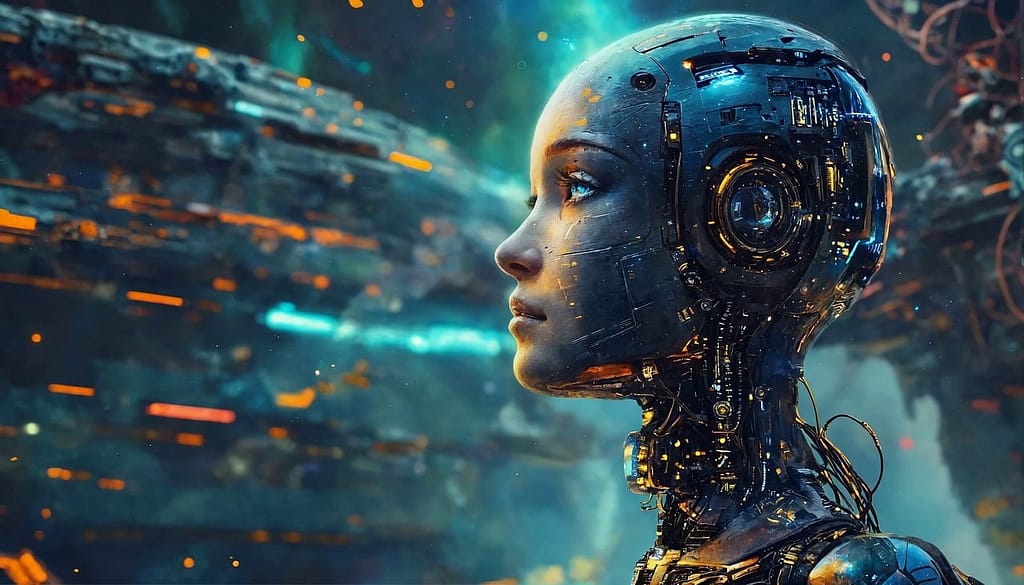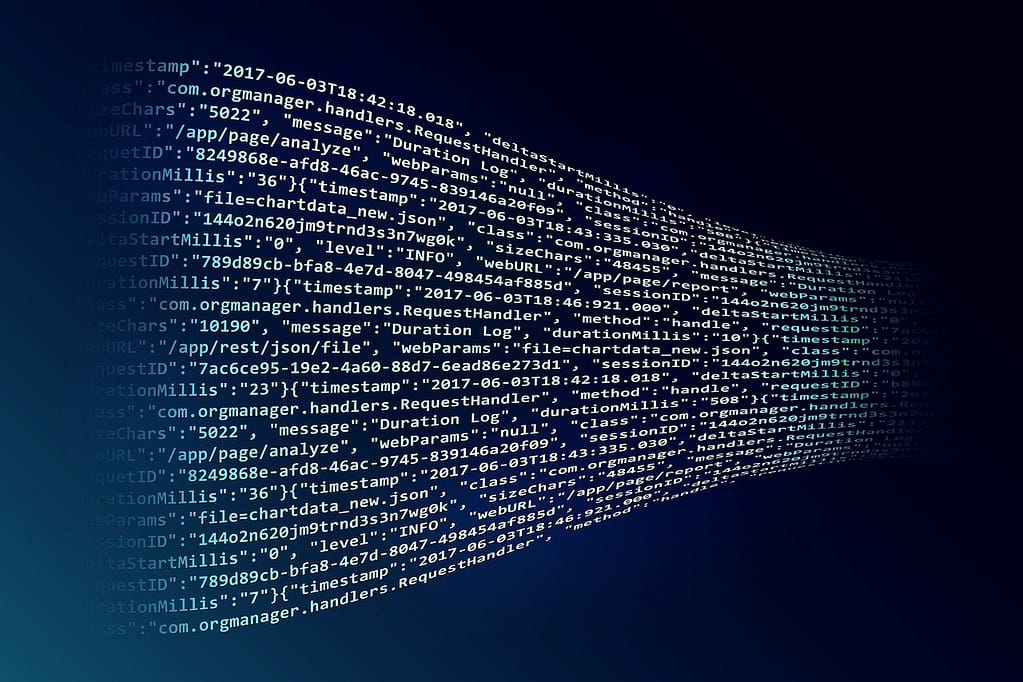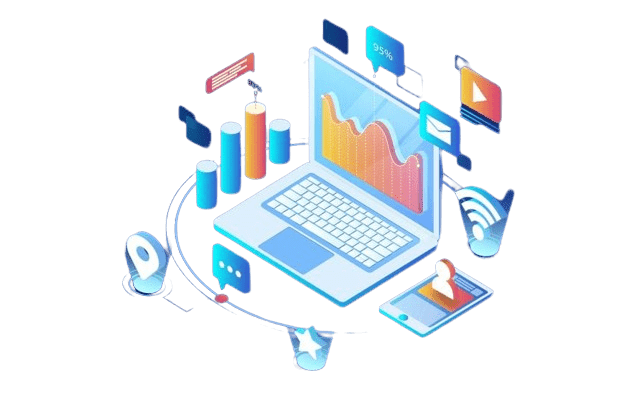In today’s rapidly evolving technological landscape, Artificial Intelligence (AI) has emerged as a game-changer, revolutionizing industries across the board. From healthcare and finance to retail and manufacturing, the impact of AI is far-reaching and transformative. With the ability to analyze vast amounts of data, AI has the power to uncover valuable insights, improve efficiency, and enhance decision-making processes. In this article, we delve into the marvels of Artificial intelligence in the real world, exploring how this revolutionary technology is reshaping various industries.
We will examine how AI-driven algorithms are assisting doctors in diagnosing diseases more accurately and at an early stage, how financial institutions are leveraging AI to detect fraudulent activities, and how retail giants are personalizing customer experiences to drive sales.
Through real-world examples and case studies, we aim to shed light on the immense potential of AI and highlight the tangible benefits it brings to different sectors. Join us on this enlightening journey as we uncover the wonders of Artificial Intelligence in the real world and explore how it is transforming industries for the better.

Applications of AI in Various Industries
AI in Healthcare
The healthcare industry stands at the forefront of AI adoption. AI-powered algorithms are assisting doctors in:
- Disease Diagnosis: By analyzing medical scans (X-rays, MRIs) with exceptional accuracy, AI can detect abnormalities and even predict the onset of diseases like cancer at earlier stages, leading to faster and more effective treatment.
- Drug Discovery and Development: AI can analyze vast datasets of molecular structures and chemical compounds, accelerating the process of drug discovery and development. This can lead to the creation of life-saving medications at a much faster pace.
AI in Finance
financial sector is rapidly embracing AI for its ability to analyze complex financial data and identify patterns. Here’s how AI is transforming finance:
- Fraud Detection and Prevention: AI algorithms can analyze transaction patterns in real-time, identifying anomalies and suspicious activities that might indicate fraudulent attempts. This helps financial institutions protect their customers and reduce financial losses.
- Algorithmic Trading and Risk Management: AI-powered trading algorithms can analyze market trends and execute trades at high speeds, optimizing investment strategies and minimizing risks.
AI in Manufacturing
The manufacturing industry is leveraging AI to automate tasks, improve quality control, and optimize production processes. Here are some key applications:
- Automation: Repetitive tasks on the assembly line can be handled by robots guided by AI, increasing efficiency and productivity.
- Quality Control: AI-powered systems can inspect products with exceptional precision, identifying defects and ensuring consistent quality throughout the production process.

AI in Retail
The retail industry is using AI to personalize customer experiences and boost sales. Here’s how:
- Personalized Recommendations: AI algorithms analyze customer data and purchase history to recommend products that are most relevant to their preferences, leading to increased customer satisfaction and sales.
- Chatbots and Virtual Assistants: AI-powered chatbots can answer customer queries 24/7, provide product recommendations, and offer support, enhancing the overall customer experience.
AI in Transportation and Logistics
The transportation and logistics sector is utilizing AI to optimize delivery routes, improve fleet management, and enhance safety:
- Autonomous Vehicles: Self-driving cars powered by AI are revolutionizing transportation. While still under development, they hold immense potential for improving efficiency and safety on the roads.
- Route Optimization: AI algorithms can analyze traffic patterns and road conditions to determine the most efficient delivery routes for trucks and other vehicles, reducing fuel consumption and delivery times.
This is just a glimpse into the vast array of industries where AI is making significant strides. As AI technology continues to evolve, we can expect even more innovative applications to emerge in the years to come.
Challenges and Concerns in Adopting AI
While AI offers a plethora of benefits, there are also challenges and concerns associated with its adoption. Some key considerations include:
- Job Displacement: Automation due to AI might lead to job losses in certain sectors. It’s crucial to develop strategies for retraining and reskilling the workforce.
- Ethical Considerations: Bias in AI algorithms can lead to discriminatory outcomes. It’s important to ensure responsible development and deployment of AI to mitigate bias and uphold ethical principles.
- Data Privacy: AI relies heavily on data. Stringent data privacy regulations are needed to ensure the secure collection, storage, and use of personal data.
Addressing these challenges is crucial for ensuring the responsible and ethical development of AI for the betterment of society.

The Future of AI in the Real World
The future of AI in the real world is brimming with possibilities. Emerging trends like explainable AI will make AI algorithms more transparent and trustworthy. Advancements in AI capabilities will lead to even more groundbreaking applications across various sectors.
Here are some exciting areas where AI is expected to have a significant impact in the future:
- Personalized Education: AI-powered tutors can personalize learning experiences for students, catering to their individual needs and learning styles. This can lead to a more effective and engaging educational system.
- Smart Cities: AI can be used to optimize traffic flow, manage energy consumption, and improve public safety in cities, creating a more sustainable and efficient urban environment.
- Climate Change Mitigation: AI can analyze complex environmental data and develop solutions for tackling climate change, such as optimizing renewable energy sources and predicting extreme weather events.
These are just a few examples of the vast potential that AI holds for shaping the future. As AI continues to evolve, it’s crucial to ensure responsible development and deployment to maximize its benefits for humanity.
Conclusion: Embracing the Benefits of AI in the Modern Era
Artificial intelligence is no longer a futuristic concept; it’s a transformative force shaping the world around us. From revolutionizing industries to tackling global challenges, AI offers immense potential for improving our lives. By acknowledging the challenges and working towards responsible development, we can harness the power of AI to create a brighter future for all.
Do you have any questions about Artificial Intelligence and its impact on the world? Join the conversation on our Quora Space Techytempest to share your thoughts and learn more!





Pingback: Artificial Intelligence vs. Human Intelligence: Who is more Accurate - Techy Tempest